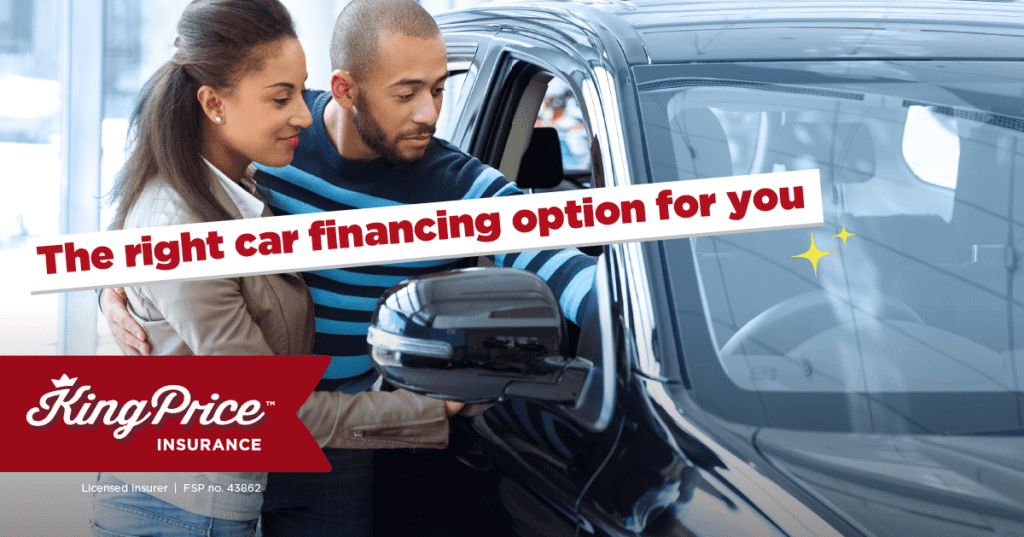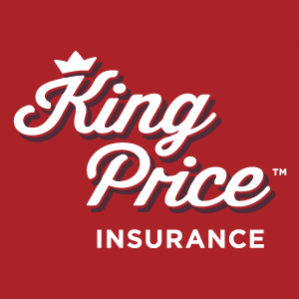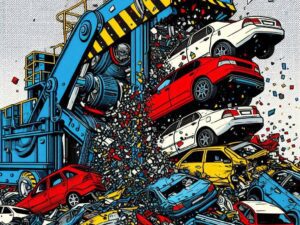The right car financing option for you

Are you in the market for a new (or new-to-you) car? Well, first, getting to the place where you can get your own set of wheels is a big step, and for that we applaud you. We’d have to say that after a house, a car is likely to be the biggest purchase you’ll make. And similar to the process of buying a house, you’re probably weighing up your finance options.
Let’s be honest, very few of us can just pay for a car with cash. It would be nice… But it’s not possible for most South Africans. So, if you’re wading through how you’re going to pay for your car, then let us help you out.
Here’s our royal take on your finance options.
The most obvious finance options available
Before we jump in, let’s talk about the obvious finance options available when it comes to buying a car.
The types of finance available:
Vehicle finance. Aka a ‘car loan,’ which is when you borrow a specific amount from a lender, typically a bank, and pay it back over time with interest added on.
Dealer finance. This involves using a loan from the dealership or through their partnership with a financial institution.
Personal loan. This is different to a car loan, because it can be secured or unsecured and the terms of your loan are vastly different.
Car lease. You make monthly payments for around 2 – 3 years to the leasing company, with the option to buy the car or give it back.
Now we can get stuck into what you really need to know, which is… Which type of finance should you use?
Weighing up the yays vs. nays
There are risks you need to think about when it comes to just about any type of financial agreement. That’s why you should go in with as much relevant info as possible before you make your decision.
Here’s a look at the major pros and cons of each type of finance option.
Straight up vehicle finance:
Pros
Cons
The interest rate added onto your loan is usually the most affordable.
To qualify, the car can’t be over 10 years old (there’s that age cap).
You’re not limited to buying new or used (but there may be an age cap).
The car you pick must be worth at least R50,000 and it can’t be a recovered stolen car.
When your payments are done, the car’s all yours.
The loan period locks you in for longer than other options.
The dealer finance route:
Pros
Cons
Super convenient. Dealers do all the paperwork, and finance and purchase is done in 1 place.
The interest rates are typically higher than banks.
You don’t have to wait for approval and the process is quick and seamless.
Going with a dealer means you’re limiting your options and can’t compare when it comes to fees and terms.
Some of the deal is negotiable, so you don’t have to accept their first offer.
Wondering if car leases are for you?
Pros
Cons
You’ll enjoy a relatively shorter repayment period, usually 2 – 4 years.
The car is never really yours, unless you choose to buy it at the end for an additional fee.
Because lease payments can be lower than loan repayments, you could buy something better with this option.
Leases usually have strict use terms and restrictions that result in penalties, like mileage restrictions, early termination, etc.
You’d have to check this out in your agreement, but lease terms usually align with the manufacturer’s warranty, so you don’t pay these types of costs.
The iffy personal loan route:
Pros
Cons
Most personal loans are unsecured, so you don’t need to provide collateral (which is when you put something up as security in case you default the loan).
The interest rates on these loans can be ridiculously high, which means your repayment amount is going to be high.
The world is your oyster, because there are no restrictions on age or condition of the car you want to buy.
The repayment period is much shorter, so when you add the higher interest rate to this, you could end up with an enormous amount of financial pressure.
Interest rates are fixed, so the repayment amount doesn’t change.
How to decide
Choosing which type of finance you’ll use mostly depends on your unique circumstances, including your income, expenses, savings, and credit history. Take some time to think about your financial situation and what it would mean to pay a lot more for a shorter period of time for your car. And then weigh that up against the less intense pressure you’d face with a traditional car loan.
It’ll really help you narrow down which option suits you the best.
What we can say, is that if you make the royally amazing decision to let us comprehensively insure your car, and that car is financed by a financial institution, then talk to us about the king’s shortfall cover.
If your financed ride is written-off, stolen, or hi-jacked, then we’ll pay the amount that you still owe the financer after we’ve settled the claim. Essentially, we’ll cover the difference between the settlement amount at the time of your car being written-off, stolen, or hi-jacked, and what you still owe. And that includes balloon payments and residual values.
We hope that this has helped.
Chat to us about our simple cheap car insurance or our shortfall cover. You can click here for a commitment-free quote today or WhatsApp us on 0860 50 50 50 (or call us, because we love a chat).
Summary
Article Name
The right car financing option for you
Description
Wondering how to buy your next car? Here’s a look at the pros and cons of the different finance options, vetted by the king’s experts.
Author
The king
Publisher Name
King Price Insurance
Publisher Logo







